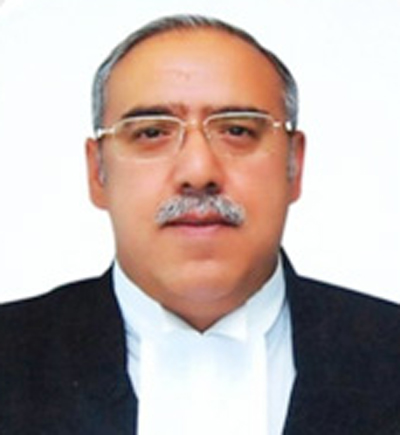Justice Deepak Gupta, who retired as Supreme Court judge last week and is known for the observation that dissent is not anti-national, has said that irrespective of ideological moorings, political parties when in power often make efforts to influence the judiciary but it is for the judges to remain fearlessly independent.
In an interview with The Telegraph, Justice Gupta, known for his forthright views, regretted that (penal clauses dealing with) dissent has been used as a tool by the government regardless of party affiliations. Excerpts from the interview:
Q: Opinion exists that the judiciary is now toeing the line of the executive, particularly under the present dispensation. Do you agree with it?
Justice Gupta: I can say whenever there is any person in the government or at the Centre or whichever party is in power, they try to take control of the judiciary. Every political party, whichever is in power, tries to control the judiciary but it is for the judges to remain independent. If a person is powerful, he will certainly try to influence the judiciary.
Q: Do you agree with the general perception that sometimes judges are appointed not for bona fide reasons but extraneous considerations?
Justice Gupta: I don’t use words like “extraneous reasons”. But I agree that sometimes the appointments are made on a quid pro quo basis (give and take) among the judges in the collegium. It works like a club. It differs from person to person.
Finally, any system is as good as the men who man the system.
Q: There has been considerable criticism of the practice of judges accepting post-retirement jobs, particularly after former Chief Justice of India Ranjan Gogoi accepted a Rajya Sabha seat. There’s the earlier instance of another former CJI, Justice P. Sathasivam, accepting the post of Kerala governor. These appointments are perceived to be based on extraneous considerations.
Justice Gupta: No, I don’t accept that appointments are made on the basis of extraneous considerations. But there is definitely a public perception that these appointments were made on extraneous considerations. I do not agree with the public perception.
I think a judge should accept a post-retirement job only after two-three years’ cooling period. Personally, I am against accepting any post-retirement job even after that period. Anyway, after two-three years, why will they need me!
Q: Do you think the unprecedented press conference by four judges of the Supreme Court on January 12, 2018, against then CJI Justice Dipak Misra badly dented the image of the judiciary forever?
Justice Gupta: I personally was not in favour of the press conference. It should not have happened. In my view, there are certain issues which should not go to the public. Judges going public with a press conference was something unprecedented but the damage is not irreparable.
Q: What about a general perception among the public that there is an element of corruption in the judiciary?
Justice Gupta: I don’t say that about the topmost judiciary. But when I talk about the judiciary, it is from the topmost to the district judiciary. There may be at times some black sheep. But it is not difficult to find out the dishonest and take suitable action. I was a judge of Himachal Pradesh and thereafter chief justice of Tripura; the judiciary I can say was 100 per cent honest in these two states.
Q: You hold a strong view that dissent should not be stifled in the country?
Justice Gupta: I am strongly of the view that the right to dissent is an essential part of democracy. Every citizen of the country has a right to criticise the government and other institutions, including the judiciary. However, the criticism against the government should not incite violence or threaten the sovereignty of the country, and the judges, which can invite the provisions of the Contempt of Courts Act.
If, within those boundaries, there is criticism or dissent, how is it an offence? I feel that our district judiciary needs to be further enlightened with regard to the law in this regard. They just issue notice and entertain complaints.
The law (relating to) dissent is used by every political party wherever they are in power.
Q: Do you think the present collegium system has worked well or should it be replaced by an alternative like the National Judicial Appointments Commission (NJAC) where the executive would have a say?
Justice Gupta: No, I think the present collegium system is good but it needs to be strengthened.
One, the age of retirement for both high court and Supreme Court judges should be made uniform -- that is, 65 years. (The current retirement age for Supreme Court judges is 65 and that for high court judges is 62).
Once the age of retirement is made uniform, the mad rush of high court judges to come to the Supreme Court will end. The uniform retirement age for judges can be made 70 years also because after retiring at 65, many Supreme Court judges take up arbitration work as they are physically fit.
Even the appointments of the chairpersons of the NHRC or other tribunals should be made from among the serving judges and not retired judges. Definitely there should not be any executive control.
But there can be some outside members like, say, retired chief election commissioners like (J.M.) Lyngdoh or (T.N.) Seshan, (or) a former cabinet secretary who has an impeccable integrity. Somebody, who is eminent, but not say Sachin Tendulkar or Lata Mangeshkar. They are very eminent persons and people of impeccable integrity but may not have knowledge of the law or the way the judiciary functions.











